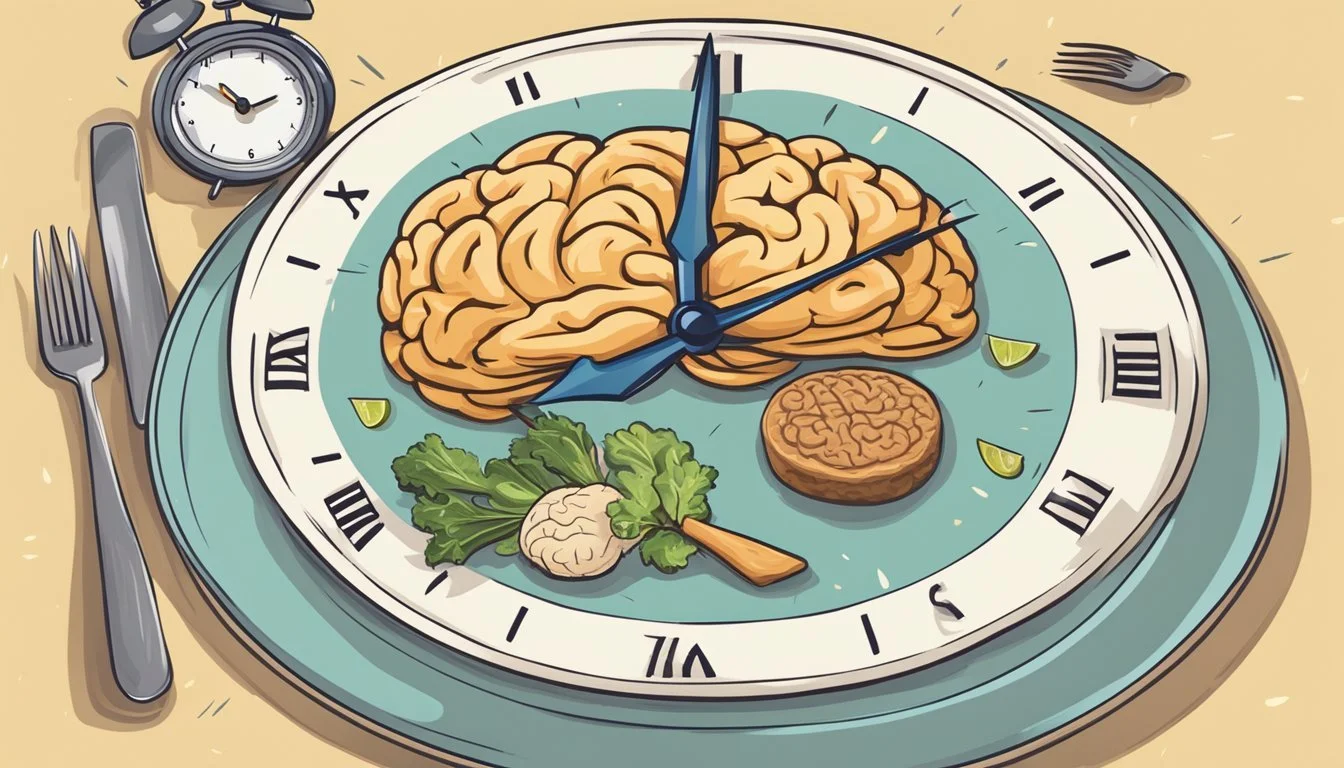The Role of Intermittent Fasting in Reducing the Risk of Stroke
Insights and Evidence
Intermittent fasting has garnered considerable attention as a strategy for improving overall health and reducing the risk of chronic diseases, including cardiovascular conditions like stroke. This dietary approach cycles between periods of eating and fasting, with variations in pattern such as time-restricted feeding, where food intake is limited to a specific time window each day, and alternate-day fasting, where individuals alternate between days of normal eating and fasting or reduced caloric intake.
Research has indicated that intermittent fasting may offer several health benefits, including weight loss, improved metabolic health, and a decrease in risk factors associated with cardiovascular diseases. The practice is suggested to influence biological pathways that affect the body's metabolism and stress resistance, potentially leading to better blood pressure control and a more favorable cardiovascular profile.
Specific mechanisms through which intermittent fasting may exert its beneficial effects on stroke risk include the restoration of key microbiota and the composition of the microbiome, as well as improvements in cyclical fluctuations in the body. These changes may play a role in reducing inflammation and enhancing brain function, which could be protective against ischemic events in the brain, such as stroke. The evidence for these effects originates from a combination of animal studies and limited human trials.
The Science of Intermittent Fasting
Intermittent fasting (IF) encompasses various eating protocols that cycle between periods of fasting and eating, with mounting evidence pointing to its potential for health benefits including stroke risk reduction.
Foundational Principles of Intermittent Fasting
Intermittent fasting is based on dietary restriction techniques that alternate between periods of eating and fasting. The underlying concept involves energy restriction, which may enhance cellular repair processes, and optimize metabolic functions. Nutrition during non-fasting periods remains critical, emphasizing the importance of balanced intake of macro and micronutrients.
Comparative Analysis of Fasting Methods
There are several methods of intermittent fasting:
Time-restricted feeding (TRF): Involves consuming all daily calories within a specific window of time, typically 8-12 hours.
Alternate day fasting (ADF): Alternates between days of normal eating and complete or partial fasting.
Periodic fasting: Includes extended periods of fasting lasting from 24 hours to several days on an occasional basis.
These methods differ in their approach to caloric intake, impacting physiological adaptability and sustainability for individuals.
Impact on Metabolic Functions
Intermittent fasting can influence metabolic functions such as glucose regulation and oxidative stress. Reduced caloric intake during fasting periods can lower blood glucose levels, potentially decreasing the risk of metabolic syndrome. Additionally, the stress of fasting may initiate cellular repair mechanisms, which can lower molecular markers of aging.
Glucose: Fasting lowers fasting glucose levels, influencing insulin responsiveness.
Oxidative stress: Short bouts of fasting might induce oxidative stress, which triggers endogenous antioxidant defenses.
Influence on Body Composition
Intermittent fasting is linked to modulation of body composition, namely reducing obesity and body weight while preserving lean mass. The intermittent energy restriction contributes to:
Fat mass loss: Preferential fat loss occurs due to fat stores being used as energy during fasting.
Weight loss maintenance: Changes in hormonal balance during IF could aid in sustaining weight loss.
This can result in improved body weight management without the detrimental loss of muscle, which is crucial for overall health and physical performance.
Intermittent Fasting and Cardiovascular Health
Intermittent Fasting (IF) advocates argue that it contributes significantly to cardiovascular health, with specific benefits for reducing the risk of stroke and improving cardiac function.
Reduction of Cardiovascular Disease Risk
Research suggests that IF can play a role in mitigating cardiovascular risk factors. Those who follow IF protocols may experience a decrease in markers of atherosclerosis, a condition where plaque builds up in the arteries, increasing the risk of ischemic stroke and myocardial infarction. By reducing body weight, inflammation, and insulin resistance, IF helps alleviate cardiometabolic risk factors that are traditionally associated with increased cardiovascular mortality.
Here's a list of observed cardiovascular benefits from IF:
Weight control: Effective in obesity prevention, thereby reducing the strain on the heart.
Inflammation: Possible reduction in systemic inflammation, a driver of atherosclerosis.
Cholesterol levels: Reduction in LDL cholesterol, which contributes to plaque formation.
Blood Pressure and Cardiac Function
IF has a notable effect on hypertension, a primary contributor to heart failure and stroke. Studies show consistent reductions in blood pressure among those who adhere to IF regimens, which can be crucial for preventing hypertensive damage to the heart and arteries.
Cardiac function may also benefit from IF due to the following:
Improved autophagy: Cellular cleansing process that removes damaged components and may help in heart muscle cell repair.
Reduced oxidative stress: Lower levels of oxidative stress help maintain the integrity of heart tissue.
By influencing these aspects, IF supports overall heart health and may fortify the body against cardiovascular diseases.
Clinical Evidence and Research
Recent clinical trials have shed light on intermittent fasting's potential in stroke risk reduction. These investigations focus on the impact of dietary intervention on various health markers relevant to stroke incidence.
Review of Current Clinical Trials
Research studies registered on clinicaltrials.gov reveal a growing interest in evaluating intermittent fasting as an intervention. Randomized controlled trials (RCTs) represent a gold standard in research to assess the efficacy of such interventions. These trials often measure a primary outcome related to metabolic health, like changes in blood pressure or lipid profiles, which are known risk factors for stroke. Secondary outcomes may include body weight reduction, insulin sensitivity improvements, and other health markers.
For example, an RCT might compare intermittent fasting with a standard diet to observe differential impacts on these health markers. Interventions are rigorously monitored to ensure compliance and minimize conflict of interest, and findings are documented with transparency for peer review.
Outcomes and Efficacy Assessment
The efficacy of intermittent fasting is gauged through a mix of outcomes, both primary and secondary. Evidence points to a correlation between intermittent fasting and improved metabolic homeostasis, which can indirectly reduce stroke risk. Studies often report significant changes like decreased body weight and enhanced insulin sensitivity, which are favorable for stroke prevention.
Although there is no direct evidence that intermittent fasting reduces overall mortality, the intervention’s positive effects on obesity, diabetes, cardiovascular disease—all stroke risk factors—suggest it may lower stroke incidence. However, it is crucial to note that the exact relationship between intermittent fasting and mortality related to stroke has yet to be conclusively established in the research.
Integrating Intermittent Fasting with Diet
Integrating intermittent fasting with a diet aimed at stroke prevention involves the strategic combination of the fasting regimen with specific diets known for their heart health benefits. Research suggests that not only the content of the diet but also the timing of food intake can significantly affect health outcomes.
Synergies with Specific Diets
The Mediterranean Diet: Known for its rich content of vegetables, fruits, whole grains, and healthy fats, the Mediterranean diet is widely acknowledged for its cardiovascular benefits. Combining this diet with an intermittent fasting schedule may amplify its effects on cardiovascular health. For instance, confining Mediterranean diet meals to a restricted eating window can enhance the positive impacts on lipid profiles and blood pressure, which are critical factors in stroke prevention.
Calorie Restriction Diets: Calorie restriction, whether daily or on alternate days, has been associated with reductions in risk factors for stroke. When calorie restriction is applied within the framework of intermittent fasting, it may improve metabolic health markers like insulin sensitivity and inflammation.
Gut Health and Microbiota
Gut Microbiota: Intermittent fasting can influence the makeup of the gut microbiota, which plays a role in metabolic processes, inflammation, and potentially, stroke risk. Time-restricted feeding patterns, a type of intermittent fasting, have been linked to a restoration of key microbiota and a resetting of the microbiome's composition.
Healthy Balanced Diet: A diverse, balanced diet provides nutrients that support a healthy gut microbiome. The integration of a balanced diet with intermittent fasting can lead to improved microbial diversity and functionality, thereby contributing to better overall health and potentially reducing stroke risk.
Safety, Side Effects, and Considerations
When adopting intermittent fasting, it is crucial to consider its safety profile, potential side effects, and important considerations for different populations. The approach requires tailored adjustments and an understanding of the associated risks.
Potential Adverse Effects and Risks
Headaches and lightheadedness can occur, especially during the initial stages of fasting. These symptoms typically resolve as the body acclimates to the new eating pattern. However, individuals may also experience other side effects such as:
Nutritional deficiencies: Skipping meals can result in not getting enough essential nutrients.
Excitotoxicity: Overeating during non-fasting periods may lead to a higher intake of excitotoxins that can potentially damage neurons.
Eating disorders: Restrictive eating practices may cause or worsen disordered eating patterns.
Participants should carefully consider these risks and engage in intermittent fasting under medical supervision, especially those with pre-existing health conditions.
Personalizing Fasting for Special Populations
Women and the Elderly: These groups may be more susceptible to the risks of fasting due to hormonal changes or pre-existing conditions. Women, particularly, may experience disruptions in their menstrual cycles due to fasting.
Individuals with Type 2 Diabetes Mellitus: While fasting might improve insulin sensitivity, it must be approached cautiously to prevent hypoglycemic events.
Inclusion Criteria: Looking for individuals who are not insulin-dependent and have stable glycemic control.
Exclusion Criteria: Avoiding individuals with a history of severe hypoglycemia or diabetic complications.
Guidelines and Recommendations
Before starting intermittent fasting, it is advised to consult with a healthcare professional to establish eligibility based on personal health and lifestyle factors. They can assist in formulating personalized fasting regimens that include:
Adequate physical activity
Necessary lifestyle changes
Consideration of pre-existing dietary and nutritional habits
Safety protocols and eligibility criteria set by healthcare providers aim to reduce risk and ensure that the fasting regimen benefits the individual's health. It is also recommended to have a balanced diet rich in nutrients during non-fasting periods to mitigate any potential nutritional shortages.
Future Perspectives and Directions
The ongoing research into intermittent fasting elucidates its multifaceted role in potentially lowering stroke risk. Two critical areas that bear significance for future explorations are the advancements in fasting-related research and the long-term impact on health and lifespan.
Advancements in Fasting-Related Research
Recent studies have catalyzed a deeper understanding of intermittent fasting, laying the groundwork for more nuanced research. Future research is anticipated to use advanced animal models to clarify the causal mechanisms behind intermittent fasting's impact on stroke risk. This may include tracking molecular markers of aging and neurodegeneration, aiming to directly correlate fasting practices with changes in blood pressure and stroke prevalence. Researchers forecast the use of more sophisticated models that better mimic human physiology, potentially leading to more accurate projections of intermittent fasting's efficacy.
Long-Term Impact on Health and Lifespan
As intermittent fasting gains attention for its possible benefits in healthspan and quality of life, long-term studies are imperative. These studies aim at understanding the extended effects of fasting protocols on human health, particularly in preventing chronic conditions such as stroke. Projections based on current data suggest beneficial outcomes, yet comprehensive longitudinal research will provide more substantial evidence. Such investigations will likely focus on how intermittent fasting influences long-term health markers and its potential in reducing the risk and progression of age-related diseases.






